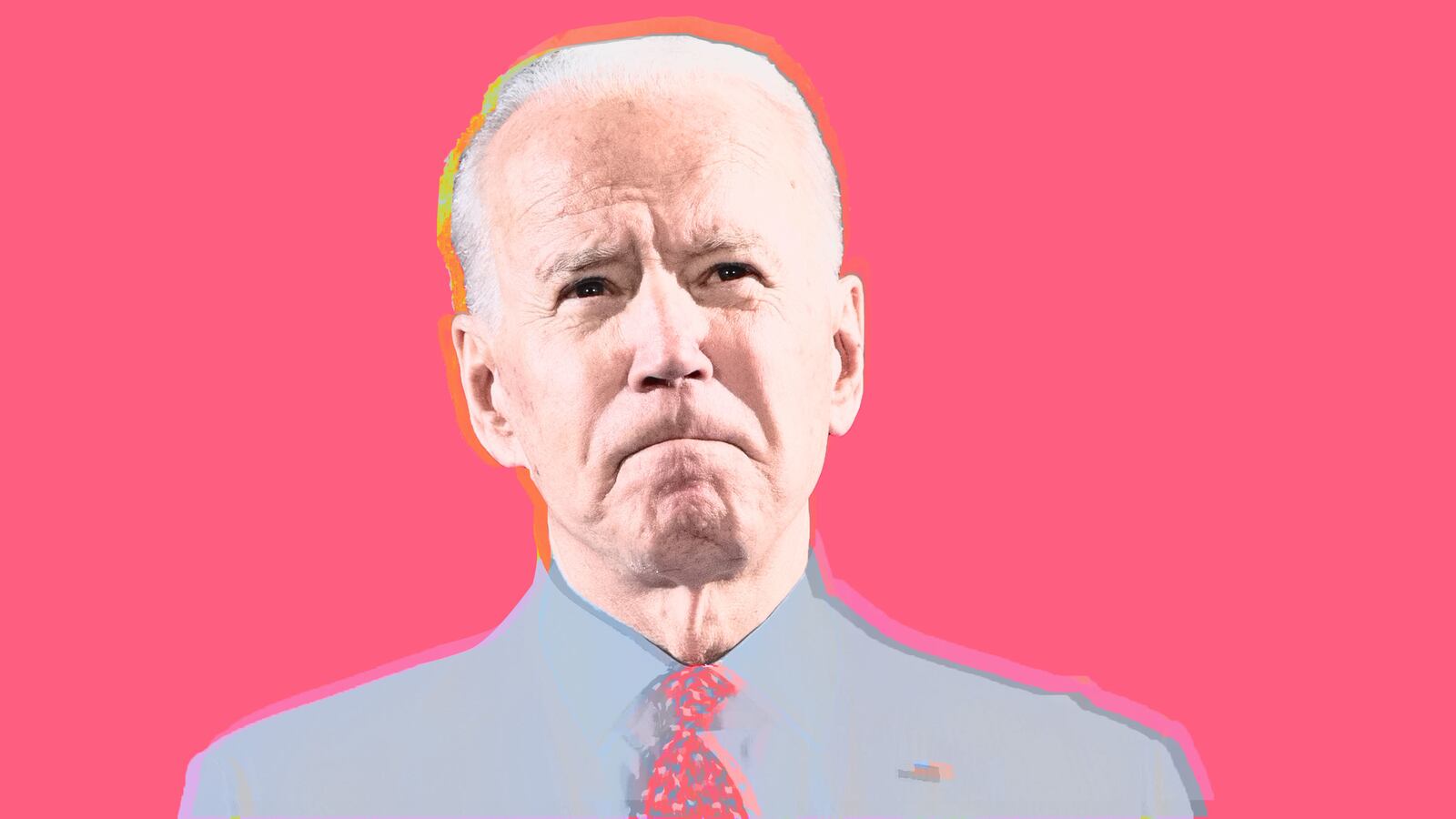Let the word go forth: No mockery or mild criticism of Joe Biden will be tolerated during this final push.
The same goes for any negative information that could possibly hurt Biden’s chances these next two weeks. The stakes are just too high for intellectual honesty, er, bothsiderism. Anyone who fails to follow this protocol will be shamed. Or worse.
Did I mention this applies to everyone? Take Jim Carrey, for example. His portrayal of Joe Biden on Saturday Night Live this past weekend was derided by Vanity Fair for giving the country “a bad Joe Biden when the country has never needed a good Joe Biden more..”
The problem? "Under normal circumstances, Carrey as Biden would be fine,” explained CNN’s Brian Lowry. “But a lot of people see the election as too important for anything that even remotely undermines Biden...” In other words, the criticism of Carrey has more to do with political correctness than with comedy. As one Twitter observer put it, “SNL has always poked fun at politicians, but this was out of order, especially now.” (Especially now?)
Of course, cultural elites and Twitter activists aren’t just “working the refs” at SNL, they are also policing actual political journalists. There is immense pressure to not give oxygen to any negative Biden stories, lest they inadvertently help re-elect Donald Trump. The sense is that Trump is so bad that we all have to prop up Uncle Joe. Anything less would be immoral.
Case in point: When New York Times reporter Maggie Haberman tweeted about the New York Post’s Hunter Biden “scoop,” she was accused of helping spread disinformation and dubbed “MAGA Haberman”. Another tweet sent by Politico’s Jake Sherman about the same topic got him suspended from Twitter and accused by a prominent opinion leader of helping “Giuliani and Bannon launder this bullshit into the news cycle.”
And it’s not just surrogates doing the attacking. When CBS reporter Bo Erickson asked for a response to the New York Post story, Biden personally attacked the reporter. “It’s another smear campaign,” Biden said, lecturing Erickson that it was “right up your alley, those are the questions you always ask.”
Up until now, I haven’t written or tweeted or commented on the New York Post’s Hunter Biden story—which should tell you about my level of skepticism about the story. But that doesn’t mean responsible journalists shouldn’t ask about it. Yet, for doing so, Erickson was accused by Ben Rhodes, Obama’s former foreign policy guru, of “acting as the far end of a Russian disinformation operation.” And Neera Tanden, president of the Center for American Progress, accused Erickson of “peddling Russian ops 18 days before the election.”
Again, though, this trend is much bigger than the New York Post’s Hunter Biden story. Almost everyone from the center leftward has gotten the memo about circling the wagons around Biden. As I write this, the only headline mentioning Biden on the homepage of the socialist outlet Jacobin is an Oct. 15 piece titled, “The Real Hunter Biden Bombshell Is That the Tech Monopolies Now Officially Decide Which News Stories You Get to See”—and that headline is buried way down below the scroll. (Keep in mind, Jacobin wrote a whole book criticizing Biden, yet now, you’d be hard pressed to find any criticism today.)
In their case, this is likely a strategic decision. But for mainstream journalists, joining the resistance is the path of least resistance.
During the primary, Biden faced more obstacles, both from the press and from progressives in the Democratic Party. He tangled with voters. He endured charges of sexual harassment. He said weird “old guy” things about record players. His past work with segregationist senators, as well as his law and order stances, were scrutinized. I don’t think it was unusually bad press.
But where was the good press? Biden made gaffes, and the gaffes got covered. He’d have bad debate performances, and those got picked over. He lost early contests, and the vultures circled overhead. Most of the time the press went ga-ga over Elizabeth Warren’s crowds, then Pete Buttigieg’s crowds, then Bernie Sanders’ crowds. At one point, there was a sense that Trump’s highlighting Hunter Biden had achieved its objective—that there was just too much baggage for Biden to overcome. It wasn’t until South Carolina when that turned around.
But once Biden became the presumptive Democratic nominee—the man who would stop Trump—the tolerance for Biden criticism began to dissipate. In the movie Moneyball, Oakland A’s General Manager Billy Beane defiantly says, “The fans don’t run my ballclub.” That line came from a day when your only recourse as a viewer was to call talk radio, write a sternly worded letter to programming, or submit a letter to the editor of your local newspaper. Today, the vicious criticism is in your face—often, from prominent opinion leaders. And sometimes, it has real consequences.
I’ve seen this first hand. My criticism of his evasive court-packing answers have garnered my fair share of email and Twitter comments, claiming that I am now a MAGA supporter. The tendency is to self-edit or shut down anything that could remotely be considered critical of Biden.
Look, I get it. We’re in the homestretch. Anxiety is thick. We are at heightened sensitivity levels. There’s going to be pressure to protect your guy. But that’s not a healthy impulse for those of us in the media. There are people whose entire jobs are to do comms for a campaign. Good for them. But that’s not the job of comedy writers, or, for that matter, political columnists—like yours truly.
If we have arrived at a point where we are worried that Jim Carrey, SNL, The New York Times, Politico, and CBS News are accused of being too tough on the Democrats, then maybe we should consider the Democrats aren’t sending their best.







